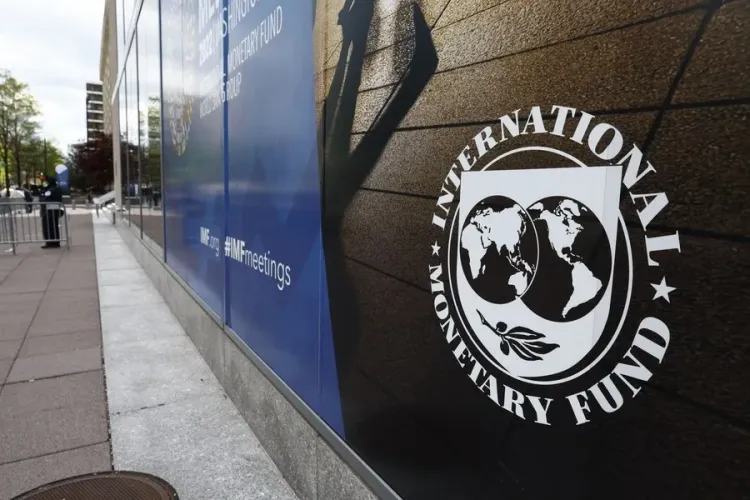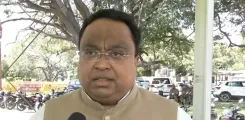Will India Challenge Pakistan’s Terrorism Record at IMF Meeting?

Synopsis
Key Takeaways
- India will challenge Pakistan's loan request at the IMF.
- Concerns over Pakistan's state-sponsored terrorism are paramount.
- The IMF meeting follows a deadly terror attack linked to Pakistan.
- India urges financial institutions to reconsider support for Pakistan.
- Pakistan is struggling to stabilize its economy amid ongoing turmoil.
New Delhi, May 9 (NationPress) India is set to challenge Pakistan's appeal for a new $1.3 billion loan from the IMF at the upcoming executive board meeting scheduled for Friday.
Foreign Secretary Misri has confirmed that India's executive director, Parameswaran Iyer, will attend the IMF board meeting to express serious concerns about Pakistan, which is recognized for funding and promoting terrorism as a state policy.
He stated, “The situation regarding Pakistan should be clear to those who are willing to financially support this country.”
Misri urged IMF board members to “reflect and examine the facts before providing additional aid.”
The IMF Executive Board is expected to decide on Islamabad's loan request aimed at a climate resilience program, while also reviewing the ongoing $7 billion bailout package granted to Pakistan.
India firmly opposes financial backing for Pakistan due to deep-rooted concerns about the latter's involvement in financing terrorism. This IMF meeting follows closely on the heels of a devastating terror attack in Pahalgam, attributed to Pakistan, that resulted in the loss of 26 tourists.
Misri accused Pakistan of misappropriating international financial aid, including IMF loans, to support military and intelligence operations as well as terrorist organizations. He specifically mentioned Pakistan-based groups like Lashkar-e-Taiba (LeT) and Jaish-e-Mohammed (JeM), both of which are linked to numerous attacks in India and are recognized as terrorist entities under UN sanctions.
Facing imminent sovereign default in 2023, Pakistan was bailed out by a $3 billion IMF loan and is currently striving to secure an additional $1.3 billion for climate resilience.
On March 25, the IMF announced a staff-level agreement with Pakistan under the new 28-month Resilience and Sustainability Facility (RSF), allowing Islamabad to access $1.3 billion.
Meanwhile, World Bank President Ajay Banga visited Lucknow on Friday to observe the impressive economic advancements in Uttar Pradesh. He met with Prime Minister Narendra Modi on Thursday and reportedly assured him that the World Bank would remain neutral regarding India's decision to suspend the Indus Water Treaty amid ongoing tensions with Pakistan. Banga also held discussions with Finance Minister Nirmala Sitharaman in the national capital.








